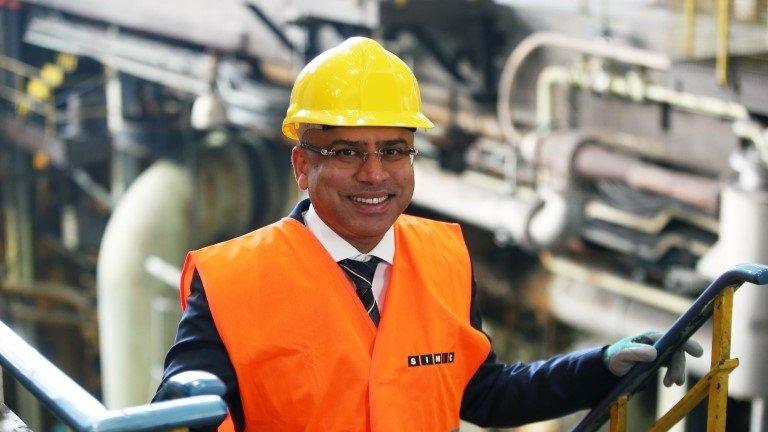Steel: Lessons of Ravenscraig loom over Port Talbot
- Published
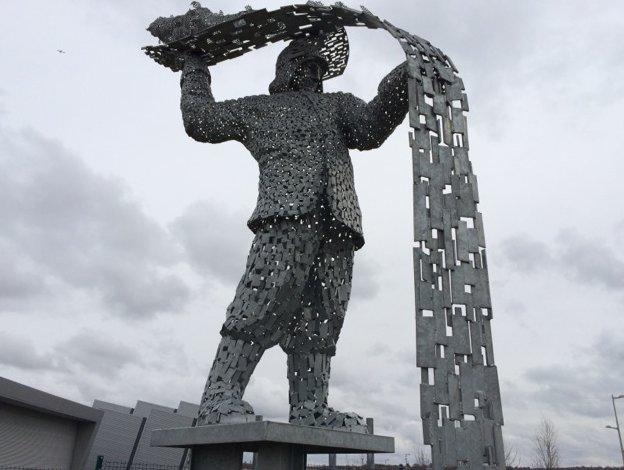
A 16ft sculpture of a steelworker was unveiled last year where the Ravenscraig works once stood
The sports centre at Ravenscraig is a homage, a "symphony in steel", say the architects.
But the music in the air is understated these days. Birdsong and the chatter of children have replaced the loud clang and clatter of heavy industry.
It is not the hush of contentment, but the quiet of an industrial graveyard.
A council leader warns of history repeating itself. A local activist urges the people of Wales to show heart and spirit and fight back.
The message to Port Talbot from Ravenscraig is blunt: don't let this happen to you.
Ravenscraig steelworks in central Scotland closed in 1992 after a bitter 12-year fight.
There is still a numbness here, the pain of a phantom limb still nearly unbearable almost a quarter of a century after amputation.
The questions it raises - about the UK's industrial strategy and the way areas are treated when their main source of employment disappears - are still raw.

Find out more:
Listen to Mark Mardell's full report from Ravenscraig on BBC Radio 4's The World This Weekend.

Workers were given generous compensation and retrained, according to one union leader, but the promised regeneration never came.
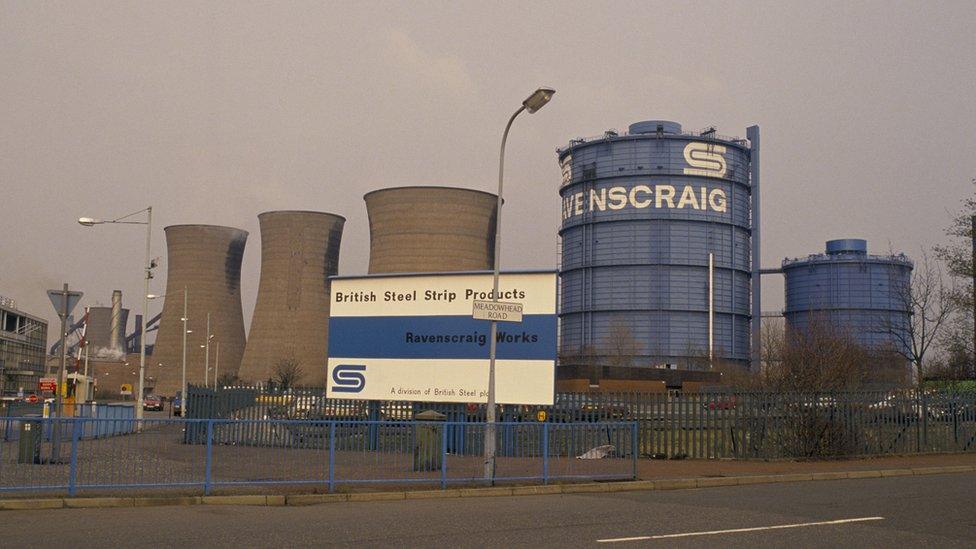
Ravenscraig employed hundreds of people directly, with thousands more jobs linked to the steelworks
The 'Craig, as everyone around here calls it with familiar affection, covered an area twice the size of Monaco. Today it is largely a wasteland, the biggest brownfield site in Europe, external.
Very brown it is too. Sure there is a gleaming glass-fronted further education college, external, a sports centre of dramatic design, external, a pub and some new homes. But there are also swathes of churned up mud, puddles and scrubby grass.
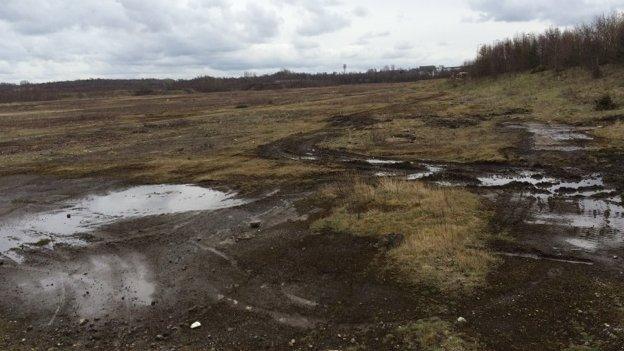
The 'Craig is now largely a wasteland
There were ambitious plans for the biggest new town in Europe and an immense shopping centre that would pull in people from all over Scotland. But other retailers didn't like the idea and there was a lengthy court battle that went to the House of Lords, external.
By the time it was over, the recession and the new enthusiasm for shopping online put paid to those dreams, external.
Floundering
Everyone I talk to speaks as if with one mind. If regeneration is to happen it should be well-funded and immediate. But it is not the answer. The answer is "save our steel".
What happened to the people of Ravenscraig - what they fear awaits families in Port Talbot - goes to the heart of a problem that haunts the West and reverberates in its politics.
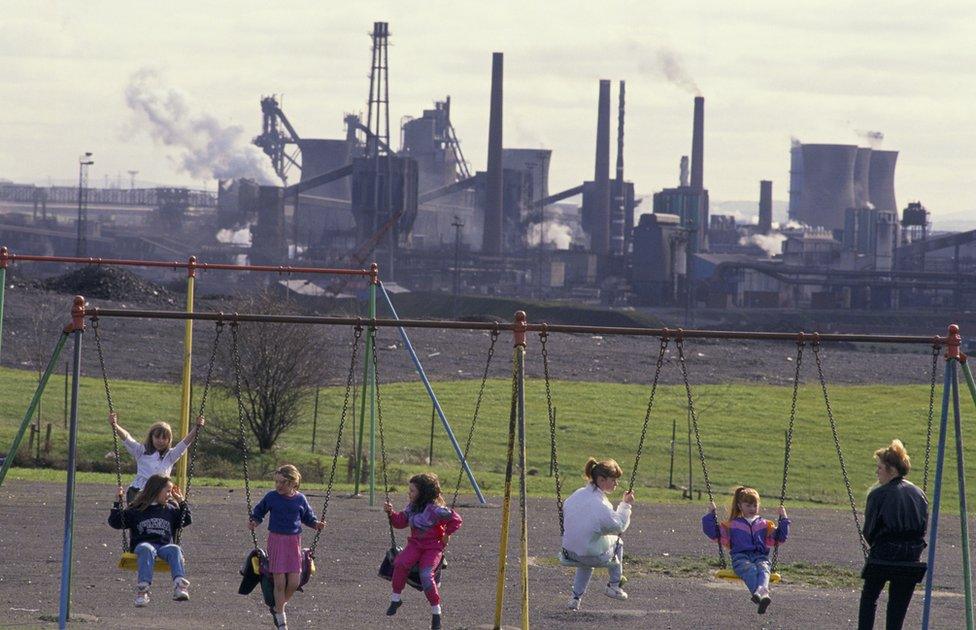
The Ravenscraig steelworks used to be a familiar part of the landscape
It is one part of the reason for the success of Donald Trump in the US and parties of the hard right and hard left in Europe, as well as the plight of the Labour Party in many parts of the UK.
While globalisation may boost the world economy, while its masters feel as at home in Beijing, Birmingham and Berlin, it leaves a remnant floundering in a changing landscape, searching for more secure national identities rooted in a tried and tested past.
It explains why we are hearing calls for trade tariffs when once protectionism seemed as old-fashioned as the intense battle over the Corn Laws, external.
Source of pride
Steelworks, like coal mining and shipbuilding, were the source of jobs for generations and decent money. But my visit to Ravenscraig reminded me that it was about more than just cash.
I started my life as a journalist on Teesside in the north east of England at the time when closures were always in the air. It seemed each week the Labour MPs would come up with a new "dossier of despair" chronicling decline.
Not much has changed - Redcar's steelworks finally shut down last autumn.
Later as an industrial reporter I covered the long and bitter miners' strike.
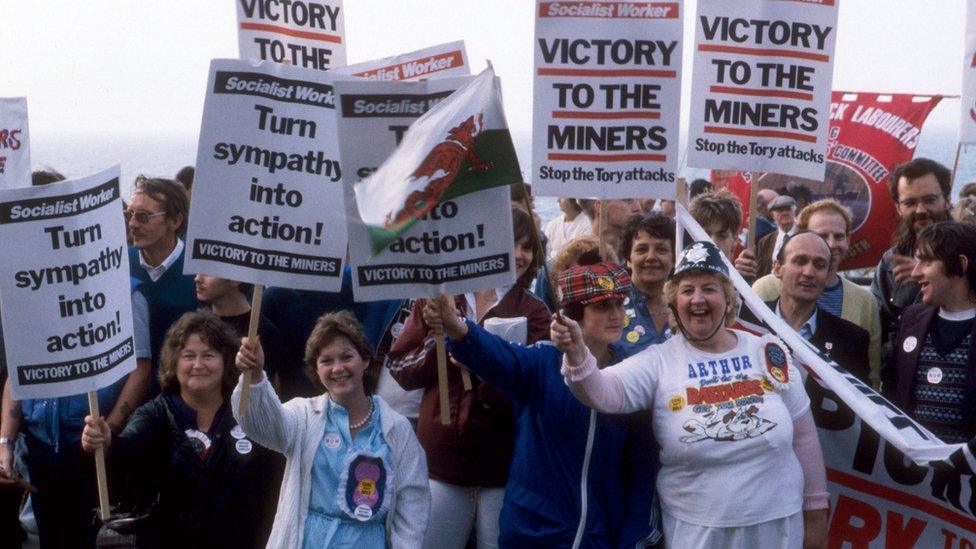
In the 1980s people in mining communities were passionate about the industry
The sector, hit by multiple mass extinctions, not only underpinned a region's economy but was a source of pride and purpose. The sort of feeling that people have for their country or their football team, people had for their industry, their plant, their pit.
Maybe that's an overly romantic generalisation but there's a truth in it.
You don't get that sense of self worth from a call centre or a food court. Nor do you get the power of the unions or a solid commitment to one political party.
Despairing nostalgia
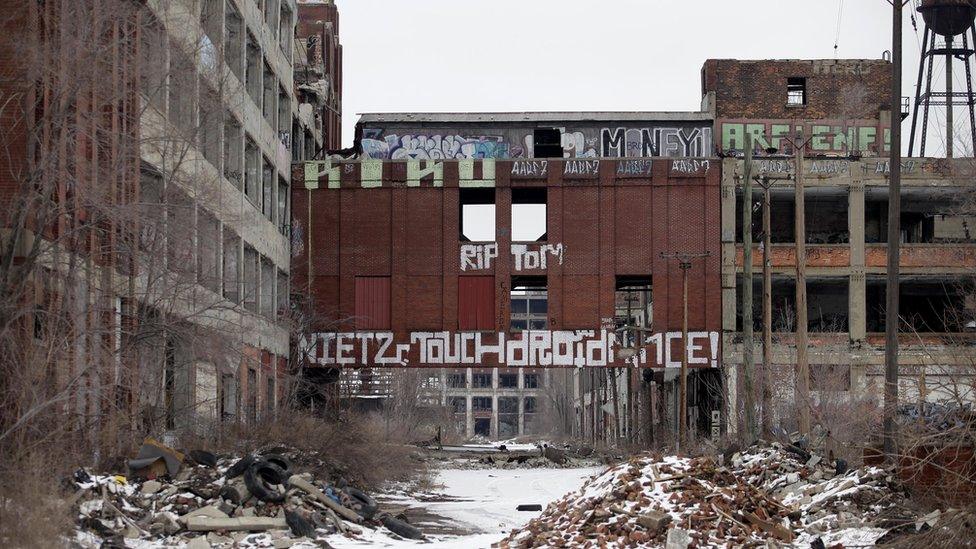
An abandoned factory in Detroit - part of the US Rust Belt
This is a phenomenon all over Europe and the US. The Rust Belt in the US, external goes on for mile after mile, rows of corroding chimneys and towers, inspiring Bruce Springsteen's despairing nostalgia for blue collar America.
You can see similar discarded husks of heavy industry all over Eastern Europe.
But there is a particularly British twist to this story. I remember going to see the heartland of German industry, the Ruhr, external, six or seven years ago.
Mining is dead but steel is very much alive. Standing high up in a steelworks command centre, like the bridge of a ship, you can look down on an area much bigger than Ravenscraig, pumping out smoke and steam.
Germany has a strategy that values manufacturing.
British strategy?
The SNP government in Scotland would say it does too, external. When Tata announced the planned closure of the last remaining steelworks, they acted, external. Details of the deal are sketchy, external, but it appears the plants were nationalised for a few brief hours and then sold on.
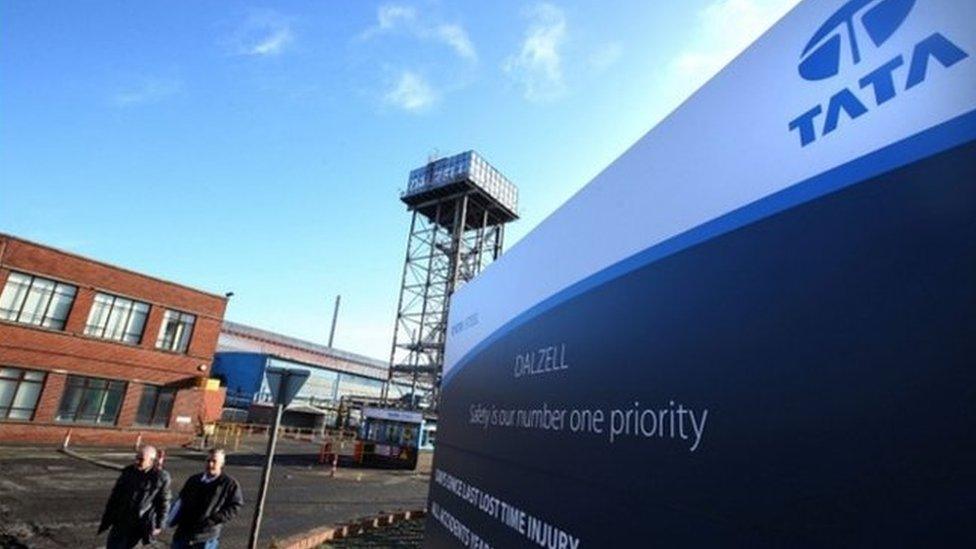
The deal for the Clydebridge and Dalzell plants involved the Scottish government buying the plants from Tata and immediately selling them on to international metals firm Liberty House
It is not just industrial giants Germany and the US who produce more steel than the UK. So do France, Italy and Spain., external
Perhaps, some would argue, that is because they are behind the times. But the question is obvious - if I have been covering the decline of British steel all my working life, what have successive British governments been doing about it, external?
At Ravenscraig you'll hear mutterings about "Maggie" and "the Conservatives". But it is arguable that all recent governments have seen heavy industry as the past, and banking and services as the bright future - the market embraced with an enthusiasm not matched on the continent.
This current steel crisis will pass, one way or another. But it provokes big questions, not only about whether steel is a strategic resource, but about the future of work. That does not mean it will result in a new strategy or new thinking.
But this leaves a sense of bitterness in its wake. As one man who worked at the 'Craig for 30 years put it: "You still need steel. You can't make the Forth Bridge out of plastic."
- Published30 March 2016
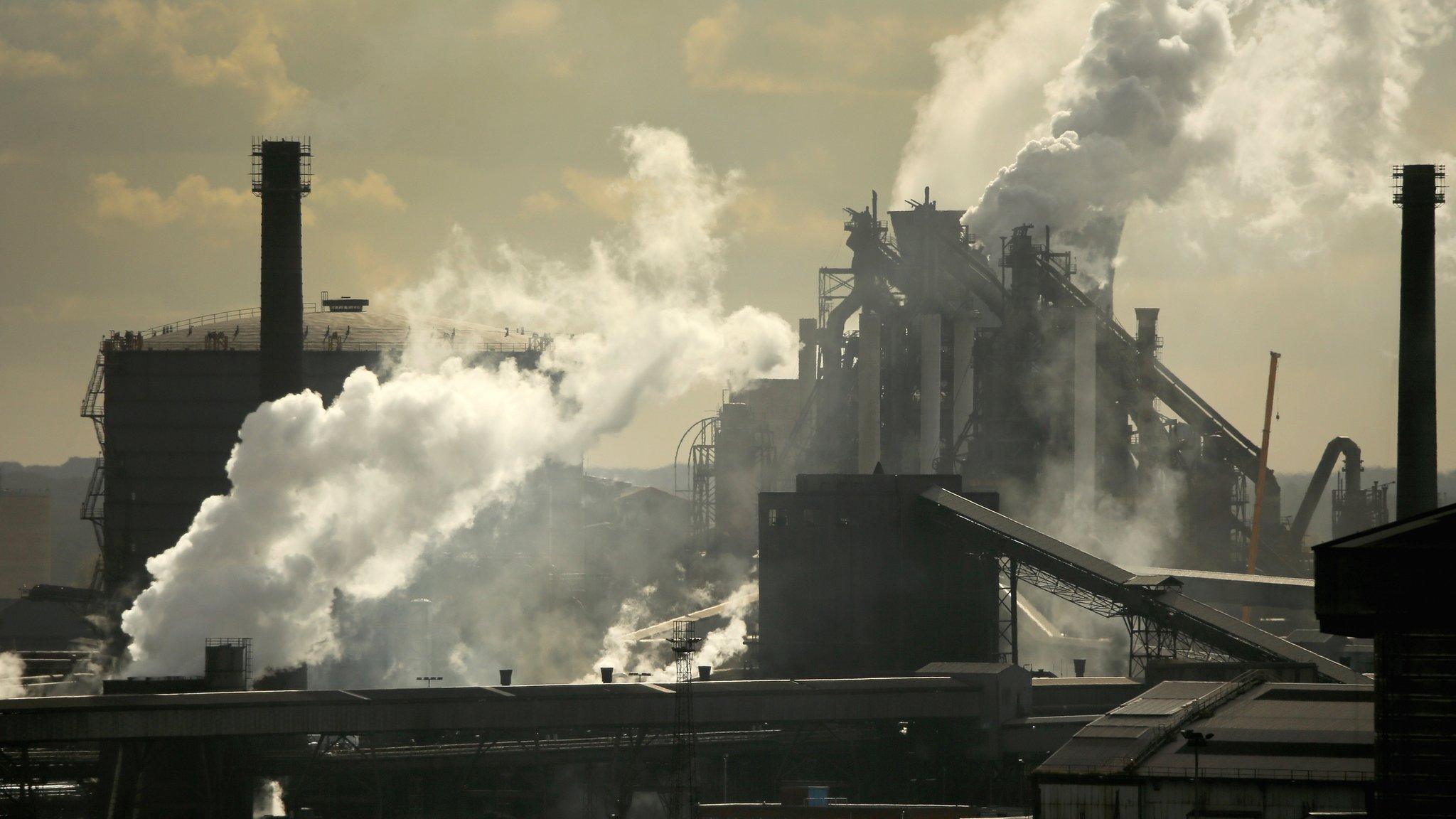
- Published31 March 2016
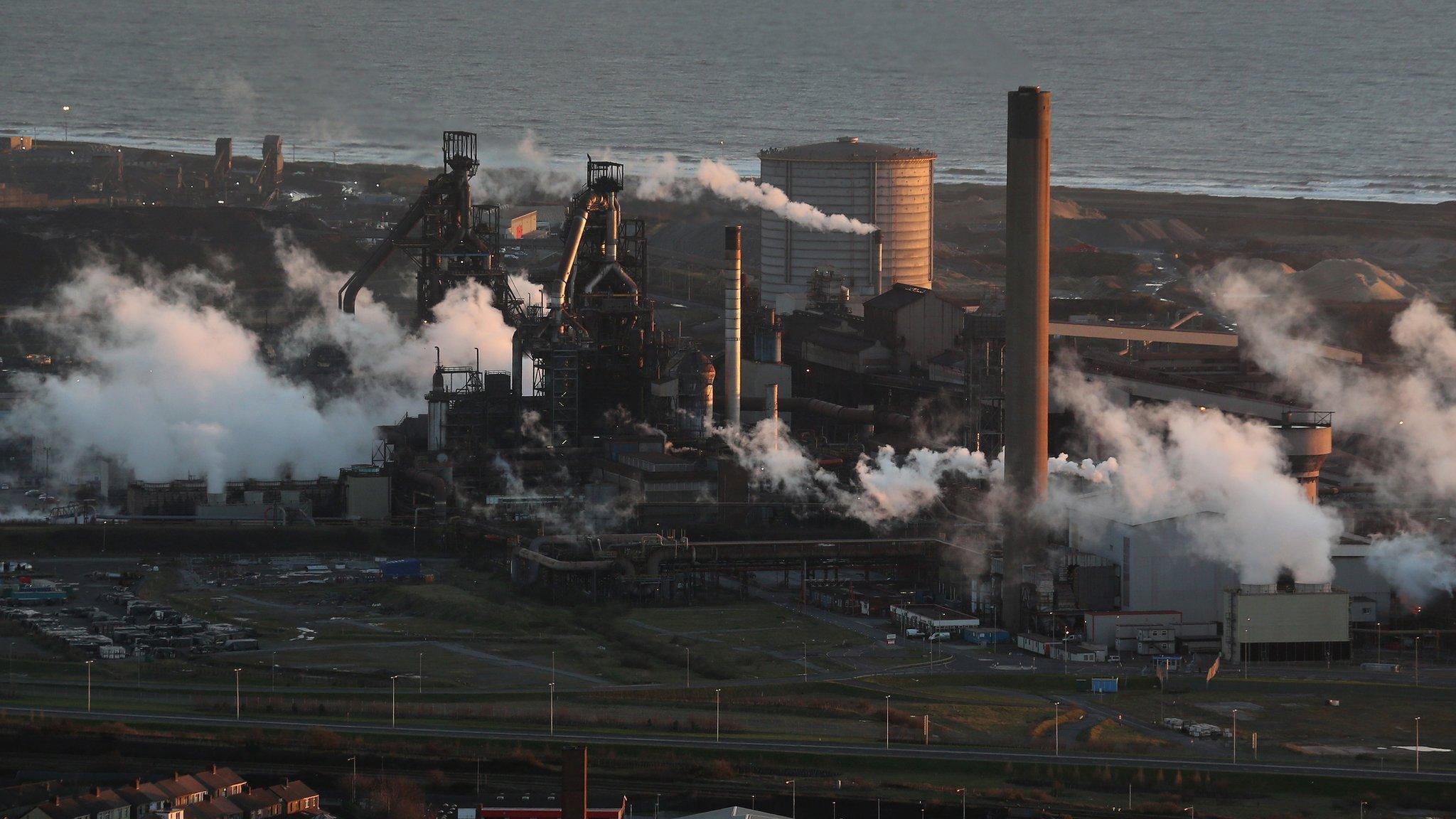
- Published6 April 2016
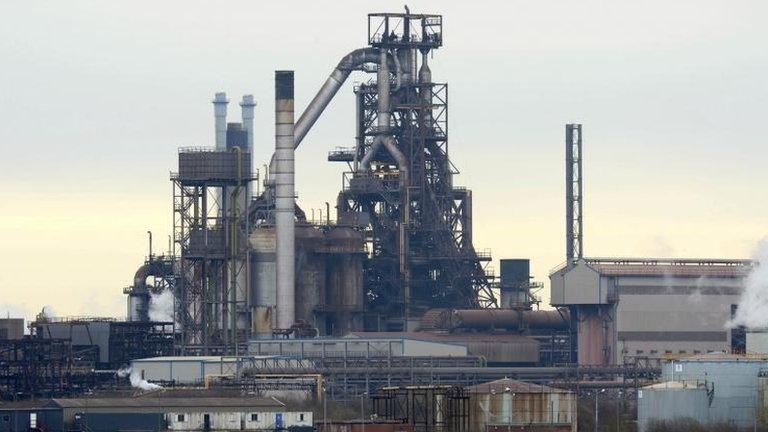
- Published4 April 2016
